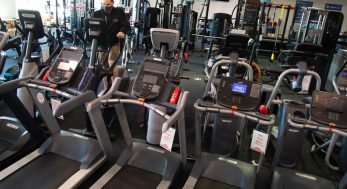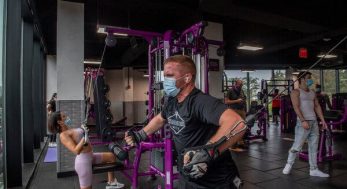The burning question that follows any workout is: what is the right thing to eat?
Health and fitness expert Yash Vardhan Swami says nutrition is a game changer because whether it is about gaining muscle or losing fat, it’s not possible to out-train a bad diet.
While it may take you hours of relentless effort to burn off calories, regaining them could take just a few minutes due to bad eating habits or an unhealthy daily routine.
Yash has been practicing fitness training since 2013 and has recommended programmes to over 2,500 clients. We asked him to help deconstruct the nitty-gritties of nutrition, the impact it has on the body, and how it can help you attain your fitness goals.
Macronutrients
Calories come from macronutrients, which play an important role when it comes to either fat loss or muscle gain, besides tending to the overall functioning of the body. They can be classified into proteins, carbs and fats. All three have their own place – while proteins and fats are essential for us, carbs are the body’s preferred source of energy.
Proteins: These are important for functioning of organs, tissue repair and growth, immune function, cell repair and muscle growth. The body needs a minimum of 0.8-3gm of protein per kg of bodyweight.
Preferred protein sources: eggs, chicken, fish, whey, low fat paneer, fat free milk, curd, tofu.
Carbohydrates: Carbs are important for muscle growth and optimal performance, though the requirement differs for each person based on factors such as genetics, body weight, body fat, insulin sensitivity and daily activity. Though not an essential, they are optimal for performance, recovery and sustainability of the body, besides being really effective when it comes to stress management.
Preferred carb sources: rice, chapati, oats, bread, potatoes, fruits, vegetables
Fats: There are a number of misconceptions when it comes to fats. But they are an integral component of organ function, joints, hormones, digestion of certain nutrients and the overall health of the brain and heart. Generally, your body needs a minimum requirement of 0.5-0.8g of fats per kg of bodyweight.
Preferred fat sources: coconut oil, olive oil, nuts, ghee, fish oil
A must-have in any diet are vegetables which are low on calories and high on fibre (which improves digestion) and are loaded with micronutrients that help energy production and cravings.
Meals
Most of our focus is on the number of calories that we consume each day. But Yash says the bigger focus should be on how these calories are consumed.
A lot of it depends on the tendency of the human body. If you have a small appetite and like to snack often, Yash suggests eating tiny meals with a higher frequency. These also work for those with digestive or gut health issues. If you can’t eat too frequently, go with medium-sized meals.
The recommended number of meals each day is between three and five. Lastly, Yash says there isn’t enough emphasis on eating slowly and chewing properly; not following these can lead to overeating, bad digestion and an overall lack of satisfaction.
Fluid intake and hydration
To put it simply, there isn’t a more efficient way to help your workout routine than by staying hydrated. Regular hydration is really effective in aiding performance and maintaining good health with respect to blood volume, body temperature and muscle function. A dehydrated body can lead to fatigue, an increased heart rate and can hamper mental performance too.
Hydration is important even before starting the exercise routine. It is recommended to consume 5-10ml per kg of bodyweight, about two hours before your workout. For every hour of exercise, it is essential to drink between 500ml and 1 litre of fluids. Aside from your workout, around 200ml of fluid intake each hour works best. Of course, a lot would depend on the environment, the amount of sweat generated during exercise and the level of hydration needed for each body, which can be different for each individual.
Sleep
Most of us miss out on an integral factor to good health, which is sleep. A lack of sleep on the whole can lead awry all other markers related to your daily routine. Healthy and punctual eating habits are also essential to getting good sleep.
There are some vital processes of the body associated with sleep such as tissue repair, the overall functioning of the immune system, brain toxin clearance, managing insulin sensitivity and proper glucose metabolism, and neuroplasticity that aids brain activity. Sleep also regulates a lot of hormones such as ghrelin and leptin, which command our hunger cravings.
A few handy tips besides exercise that could translate to good sleep patterns would be to cut out caffeine post 4pm, eating your last meal about 2-3 hours before sleep, a short stroll post dinner, and de-stressing before hitting the bed.
On the whole, adequate and quality sleep is essential for everything from optimally losing fat and gaining muscle to improving health markers and cognitive functions of the body. Though the requirement depends on each individual, athletes and those into working out must get at least eight hours of sleep each day.
Final suggestions
Yash says there are a lot of misconceptions related to supplements. They can be convenient as nutritional supplements, but they can never replace food. Rather than spending money on fat burners, slimming teas and testosterone boosters, Yash recommends eating good quality food.
Here are Yash’s notes to remember for any fitness goal.
-
A consistent exercise routine and eating pattern that is also realistic and sustainable is key for all your goals.
-
Sleep is the essential to recovery, which makes it important to get up to eight hours each day.
-
No routine is complete without a planned rest day.
-
In addition to weight training, cardio sessions are essential for optimal heart health, lymphatic function, recovery and mental clarity.
-
And finally, it is important to enjoy the process of working out and eating right for it to have any kind of impact on the whole.


